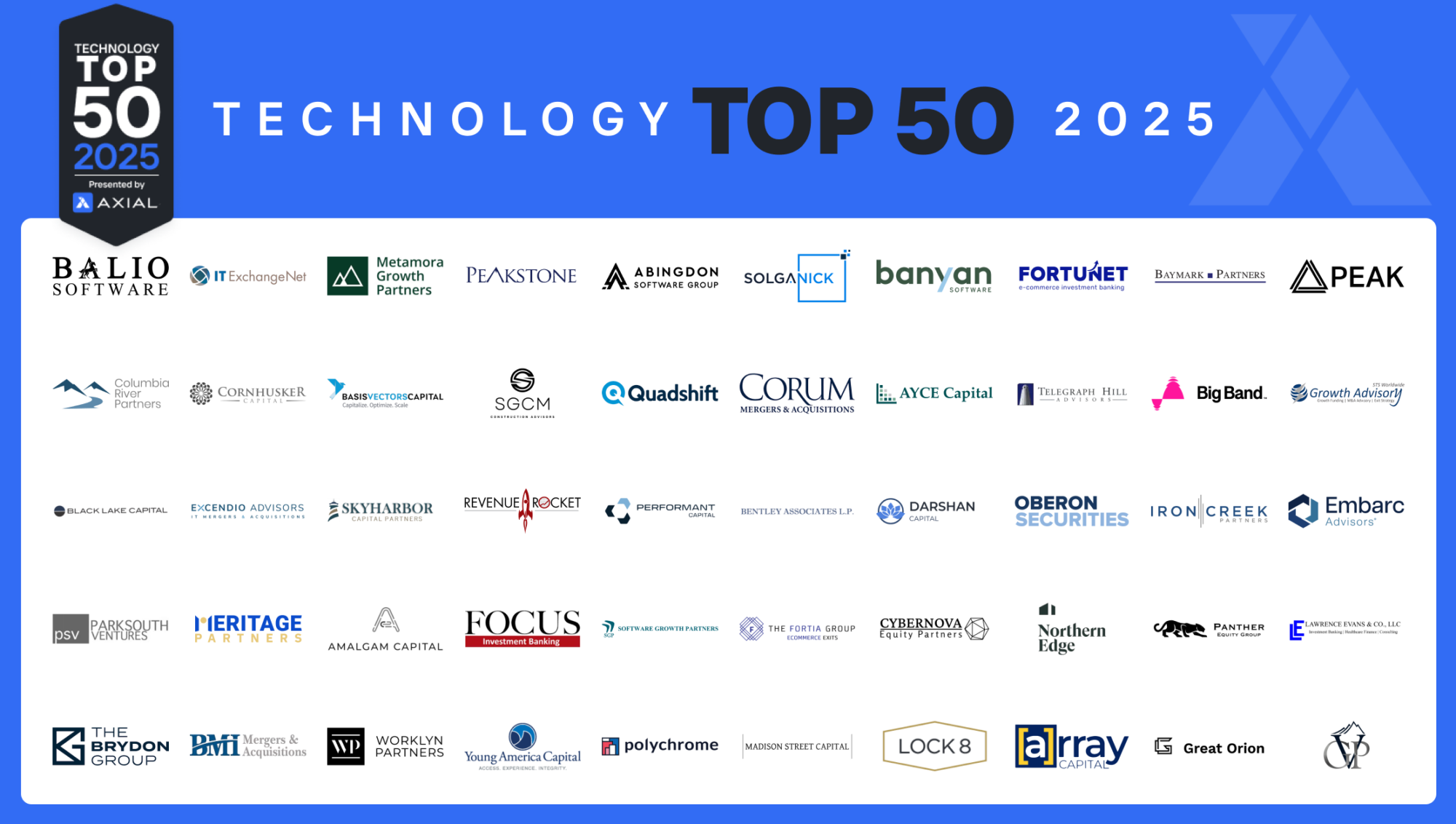
The Top 50 Lower Middle Market Technology Investors & M&A Advisors [2025]
Technology remains a steady presence in the lower middle market, representing ~13% of deals brought to market via Axial over…
 Private equity management fees and the traditional “2 and 20” model are under pressure from both investors and regulators. Blackstone recently announced that it will be using 100% of its deal and monitoring fees to offset management fees after numerous requests from limited partners, following in the footsteps of KKR, Apollo and Kelso. With the average management fee for funds with $2.5B+ of AUM at 1.63%, it is clear that the private equity industry is going to have to do more with less. But why is the industry facing management fee pressure?
Private equity management fees and the traditional “2 and 20” model are under pressure from both investors and regulators. Blackstone recently announced that it will be using 100% of its deal and monitoring fees to offset management fees after numerous requests from limited partners, following in the footsteps of KKR, Apollo and Kelso. With the average management fee for funds with $2.5B+ of AUM at 1.63%, it is clear that the private equity industry is going to have to do more with less. But why is the industry facing management fee pressure?
Limited Partners have grown tired of the rigid 2/20 fee structure that has been imposed upon them for years without performance guarantees, and increasingly want lower fees coupled with the flexibility to invest more in deals they like. They have begun hiring direct investment staff and, in a way, are starting to look more like General Partners.
The Wall Street Journal recently highlighted that pension funds and sovereign-wealth funds are buying companies and assets directly while others are increasing internal capital allocation decision-making, as opposed to working with traditional private equity firms or fund-of-funds.
Further, Limited Partners have also begun co-investing alongside private equity firms to avoid the traditional fee structure, typically paying a 1.0% management fee and 10% carried interest on co-investments – much lower than the standard “2 and 20” model to which private equity firms have become accustomed. These trends are expected to intensify as Limited Partners continue to develop in-house direct investing expertise and become more selective in their capital allocation.
Regulatory pressures are also impacting private equity fees as a result of increased compliance from the Dodd-Frank Act, which requires private equity firms with more than $150 million under management to register as investment advisors. For example, the Securities and Exchange Commission has indicated that private equity fund managers will need to better disclose which expenses should be allocated as part of private equity firms’ management fees and which should be charged to the fund as operating costs.
KKR most recently received criticism from some of its pension fund investors after they discovered that the company did not inform them for nearly one year that its decision to credit money back to investors’ accounts was prompted by a regulatory exam by the SEC in late 2013. Separately, Blackstone recently announced that it will no longer write clauses into its agreements for accelerated monitoring fees, which are often undefined and paid in a lump sum payment at the point of sale or IPO of a portfolio company, ensuring a certain fee revenue floor that can be expected throughout the life of an investment.
As regulators increasingly scrutinize firms while management fees remain stagnant or decline, private equity firms will be stuck operating with a tighter budget.
To manage this new environment, GPs should consider hiring domain experts on a project-by-project basis to support individual transactions. This approach has the dual benefit of (1) keeping overall HR costs low by replacing fixed costs with variable resources that can be scaled as and when there is deal flow and (2) simultaneously improving the breadth and depth of an investment team in an increasingly competitive, low-fee environment.
At SpareHire, we are seeing more and more investment firms adopt this specialist approach by hiring sector experts to help execute transactions on a deal-by-deal basis instead of maintaining large teams of generalist investment professionals. We are also seeing investment firms encourage their portfolio companies to utilize flexible talent (freelance investment bankers, consultants, industry experts and interim CFOs) to support capital raises, add-on acquisitions and other strategic initiatives, thereby freeing up in-house investment staff to focus on deal execution.
The internet has made it significantly easier to access specialized skills sets on demand at an affordable price. With that in mind, if you run an investment firm, make sure you are utilizing the disruptive power of the internet and flexible talent pools to improve your HR efficiency and ultimately deliver better returns to your investors.